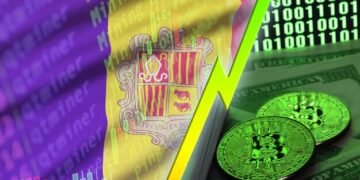Navigating Debt During Unemployment: Strategies for Staying Afloat

Navigating debt during unemployment involves proactive strategies like budgeting, prioritizing essential payments, exploring relief programs, and communicating with creditors to manage financial challenges effectively.
Job loss can create significant financial challenges, especially when you’re already managing debt. Navigating debt during unemployment: Strategies for staying afloat requires a proactive and informed approach to protect your financial well-being.
Understanding the Challenge of Debt During Unemployment
Losing your job is stressful enough, but the added pressure of managing existing debt can feel overwhelming. Understanding the specific challenges you face is the first step in developing an effective strategy.
Unemployment often leads to reduced or nonexistent income, making it harder to meet your debt obligations. This can quickly lead to missed payments, late fees, and a negative impact on your credit score.

Assessing Your Debt Situation
Begin by creating a comprehensive list of all your debts, including credit cards, loans, mortgages, and any other outstanding balances. Note the interest rates, minimum payments, and due dates for each.
Next, evaluate your current income and expenses. Determine how much money you have available each month to allocate to debt repayment. This will help you prioritize which debts to focus on first.
Common Types of Debt During Unemployment
- Credit Card Debt: Often carries high interest rates, making it crucial to minimize balances and avoid new charges.
- Mortgage Payments: Missing mortgage payments can lead to foreclosure, making it a top priority to manage.
- Student Loans: Explore options like deferment or income-driven repayment plans to ease the burden.
- Personal Loans: These may have fixed repayment schedules, requiring consistent payments to avoid penalties.
Understanding the specific terms and conditions of each debt will enable you to make informed decisions about how to manage them during unemployment. Ignoring these debts can lead to long-term financial consequences.
Creating a Budget and Prioritizing Expenses
A well-structured budget is essential for navigating debt during unemployment. It allows you to see exactly where your money is going and identify areas where you can cut back.
Start by listing all your essential expenses, such as housing, food, utilities, transportation, and healthcare. These are the non-negotiable costs that must be covered each month.
Cutting Non-Essential Spending
Identify areas where you can reduce or eliminate spending. This might include dining out, entertainment, subscriptions, and other discretionary expenses. Even small reductions can free up significant cash for debt repayment.
Consider temporary lifestyle changes, such as cooking at home instead of eating out, canceling unused memberships, and finding free or low-cost entertainment options. Every dollar saved can be put towards managing your debt.

Prioritizing Debt Payments
- Secured Debt: Focus on secured debts first, such as mortgages and auto loans, as these are tied to assets that could be repossessed.
- High-Interest Debt: Prioritize debts with the highest interest rates, like credit cards, to minimize long-term costs.
- Essential Services: Ensure payments for essential services like utilities are made to avoid disruptions.
- Minimum Payments: At a minimum, make the minimum payments on all debts to avoid late fees and negative credit reporting.
Creating a realistic budget and prioritizing expenses will provide you with a clear roadmap for managing your finances during unemployment. Adhering to your budget will help you stay on track and avoid accumulating more debt.
Exploring Unemployment Benefits and Assistance Programs
Unemployment benefits can provide a crucial financial lifeline during job loss. Understanding the requirements and eligibility criteria is essential to accessing these resources.
Unemployment insurance provides temporary income replacement to eligible workers who have lost their jobs through no fault of their own. The amount and duration of benefits vary by state.
Applying for Unemployment Benefits
File your unemployment claim as soon as possible after losing your job. Most states allow you to apply online, and you may need to provide documentation such as your employment history and Social Security number.
Be prepared to attend interviews or provide additional information as requested by the unemployment office. Regularly check your state’s unemployment website for updates and important notices.
Additional Assistance Programs
Many assistance programs can help with expenses like food, housing, and healthcare. These programs can provide temporary relief while you seek new employment.
- SNAP (Supplemental Nutrition Assistance Program): Provides food assistance to low-income individuals and families.
- TANF (Temporary Assistance for Needy Families): Offers financial assistance and support services to families with children.
- Medicaid: Provides healthcare coverage to eligible low-income individuals and families.
- LIHEAP (Low Income Home Energy Assistance Program): Helps with home energy costs and weatherization.
Exploring these unemployment benefits and assistance programs can significantly ease the financial burden during job loss. Take the time to research and apply for programs that you may be eligible for.
Negotiating with Creditors and Exploring Debt Relief Options
Communication is key when navigating debt during unemployment. Contacting your creditors to explain your situation and explore possible solutions can prevent further financial distress.
Many creditors are willing to work with borrowers who are experiencing temporary financial hardship. They may offer options such as reduced interest rates, temporary payment deferrals, or modified payment plans.
Negotiating with Credit Card Companies
Call your credit card companies and explain that you are unemployed and struggling to make payments. Ask if they can lower your interest rate or offer a temporary hardship program.
Some credit card companies may offer a debt management plan (DMP) through a credit counseling agency. This involves consolidating your debts and making monthly payments to the agency, which then distributes the funds to your creditors.
Exploring Debt Relief Options
- Debt Consolidation: Combining multiple debts into a single loan with a lower interest rate.
- Debt Settlement: Negotiating with creditors to pay a lump sum that is less than the full amount owed.
- Bankruptcy: A legal process that can discharge some or all of your debts, but it has a significant impact on your credit score.
Remember to proceed with caution when considering debt relief options. Research each option thoroughly and seek advice from a qualified financial advisor before making any decisions.
Protecting Your Credit Score During Unemployment
Maintaining a good credit score is crucial, even during unemployment. A low credit score can make it harder to secure loans, rent an apartment, or even get a job in the future.
The steps you take to manage your debt during unemployment directly impact your credit score. Missed payments and high credit utilization can negatively affect your credit rating.
Making Timely Payments
Even if you can only afford to make minimum payments, it’s important to pay all your bills on time. Late payments can quickly damage your credit score.
Set up automatic payments or reminders to ensure you don’t miss any due dates. Consider using a credit monitoring service to track your credit score and receive alerts about any potential issues.
Avoiding New Debt
- Limit Credit Card Use: Avoid using credit cards for everyday expenses, as this can quickly increase your debt balance.
- Avoid Payday Loans: These loans often have high interest rates and fees, making them a risky option.
- Monitor Credit Report: Check your credit report regularly for errors or fraudulent activity that could harm your credit score.
By taking proactive steps to maintain your credit score during unemployment, you’ll position yourself for a stronger financial future. A good credit score will make it easier to rebuild your finances once you’re back on your feet.
Seeking Professional Financial Advice
Navigating debt during unemployment can be complex, and seeking professional financial advice can provide valuable guidance and support. A qualified financial advisor can help you develop a personalized strategy for managing your debt and achieving your financial goals.
A financial advisor can assess your financial situation, review your debts, and recommend appropriate debt relief options. They can also help you create a budget, prioritize expenses, and develop a long-term financial plan.
Finding a Qualified Financial Advisor
Look for a certified financial planner (CFP) or a credit counselor with experience in debt management. Check their credentials and ensure they are registered with the appropriate regulatory bodies.
Consider seeking advice from a non-profit credit counseling agency. These agencies offer free or low-cost counseling services and can help you develop a debt management plan.
Benefits of Professional Advice
- Personalized Guidance: Tailored advice based on your unique financial situation.
- Objective Assessment: An unbiased evaluation of your debt relief options.
- Negotiation Support: Assistance in negotiating with creditors.
- Long-Term Planning: Help with developing a financial plan to achieve your goals.
Seeking professional financial advice can provide you with the knowledge and support you need to navigate debt during unemployment. A qualified advisor can help you make informed decisions and take control of your financial future.
| Key Point | Brief Description |
|---|---|
| 💰 Budgeting | Create a detailed budget to track income and expenses. |
| 📞 Negotiating | Contact creditors to explore possible relief options. |
| ✅ Benefits | Apply for unemployment benefits and assistance programs. |
| 🛡️ Credit | Protect your credit score by making timely payments. |
Frequently Asked Questions
▼
Apply for unemployment benefits as soon as possible. Then assess your financial situation, create a budget, and explore assistance programs to manage immediate financial needs.
▼
Contact your creditors, explain your situation, and ask for options like reduced interest rates, temporary payment deferrals, or modified payment plans to ease your financial burden.
▼
Consider debt consolidation, debt settlement, or consulting a credit counseling agency. Evaluate each option carefully and seek professional advice before making a decision.
▼
Make timely payments, even if it’s just the minimum, to avoid late fees and negative credit reporting. Also, avoid taking on new debt unless absolutely necessary.
▼
Seek financial advice if you’re overwhelmed by debt, unsure about your options, or need help creating a comprehensive financial plan to manage your situation effectively.
Conclusion
Navigating debt during unemployment: Strategies for staying afloat requires proactive planning, diligent budgeting, and open communication with creditors. By understanding your options and seeking appropriate support, you can manage your financial challenges effectively and pave the way for a more secure future.





